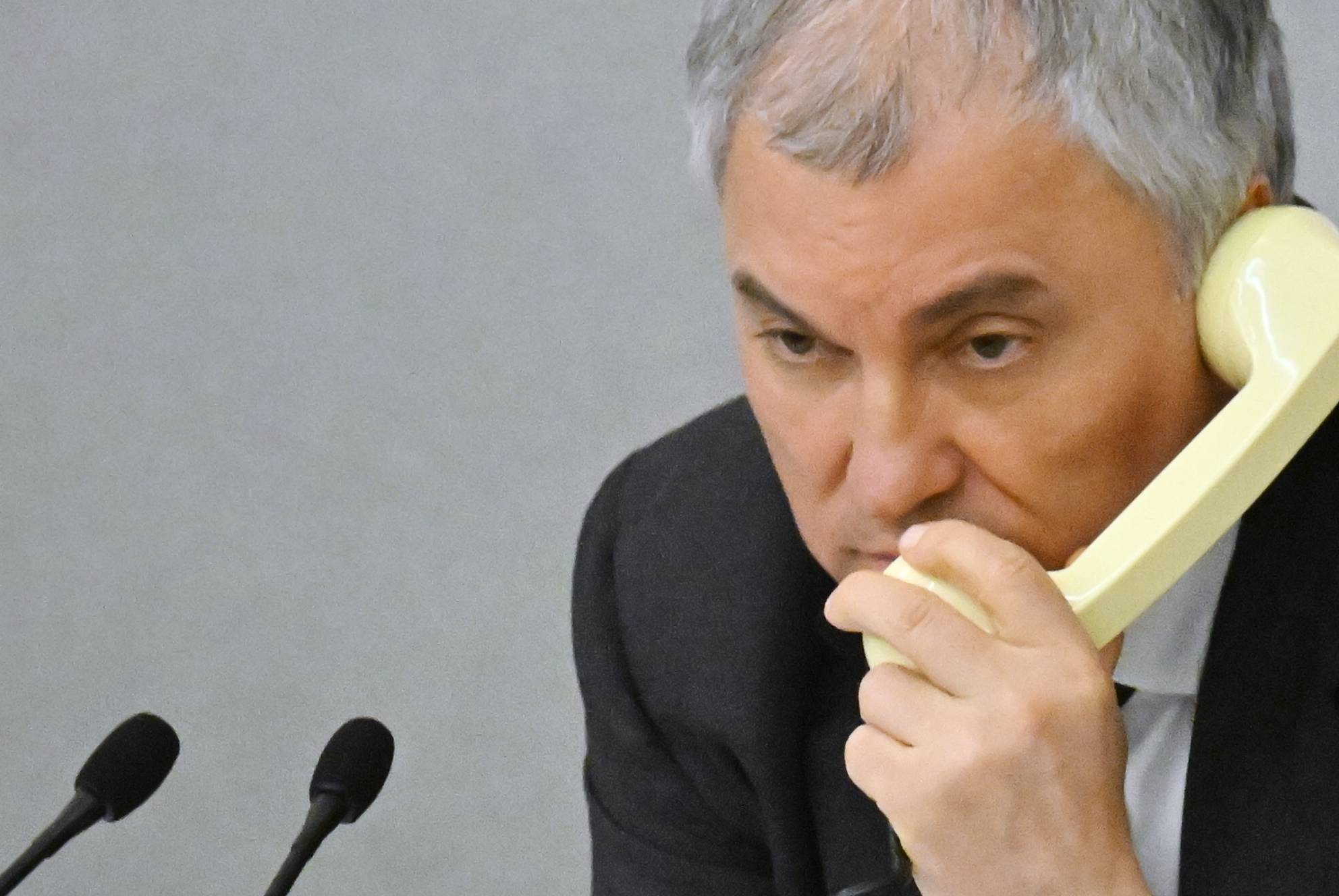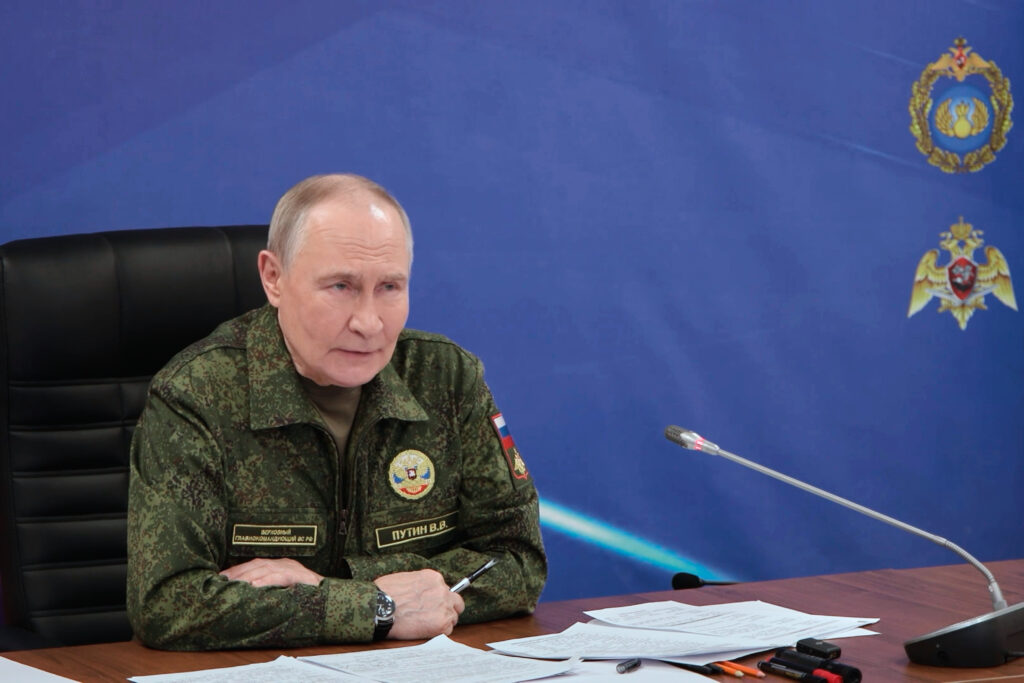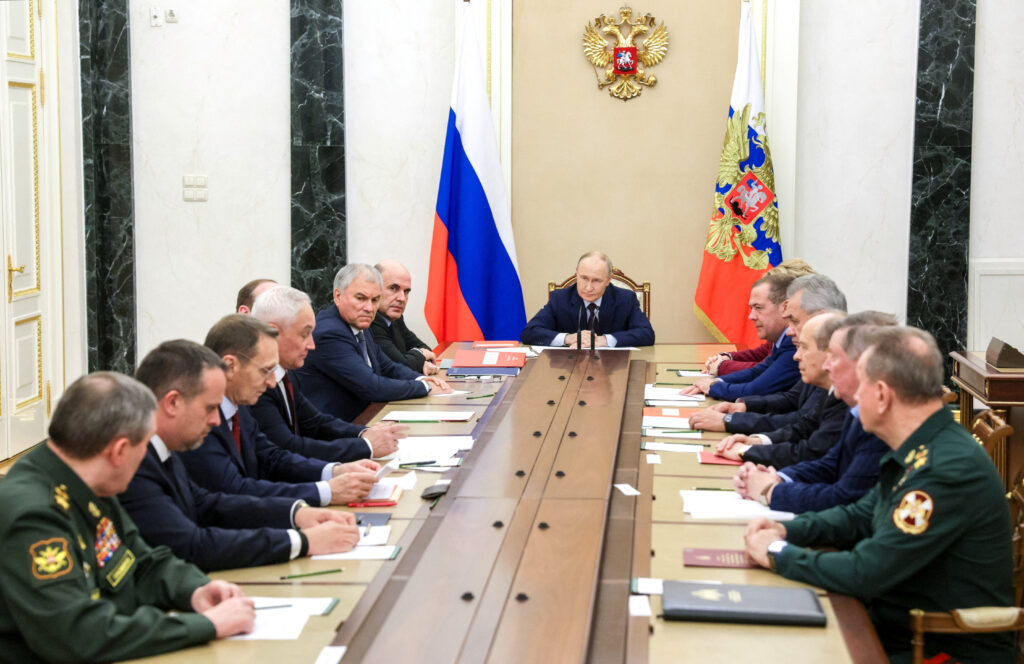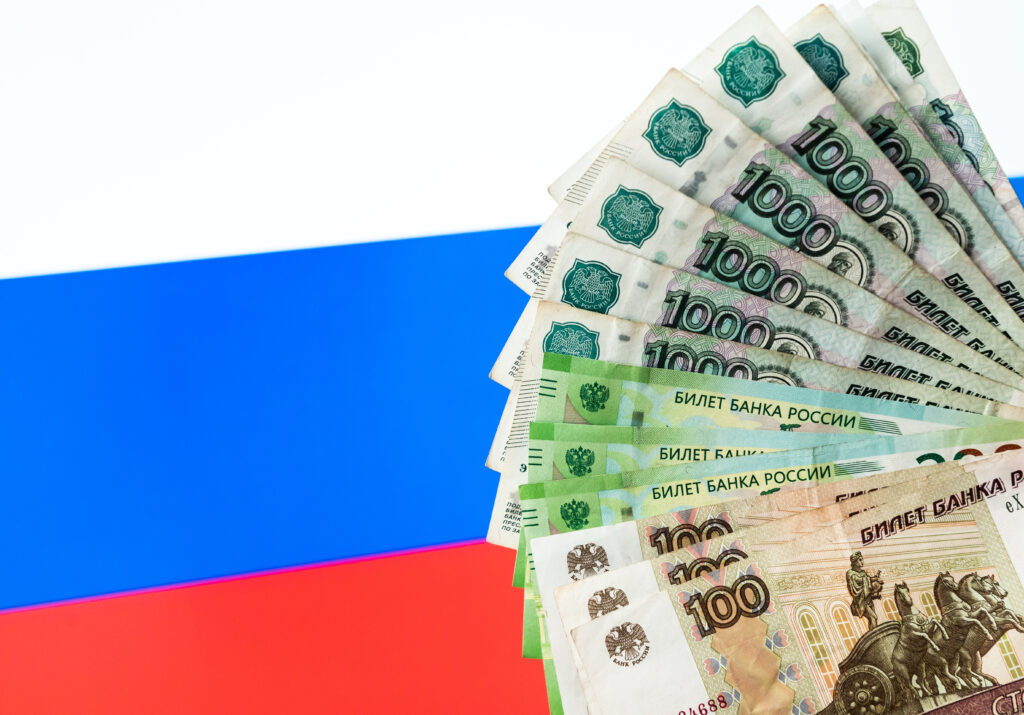State Duma Speaker Vyacheslav Volodin has begun to obstruct initiatives from the Presidential Administration’s (PA) political bloc. A bill allowing the elimination of paper ballots in elections has been stalled in the Duma’s apparatus, with its review significantly delayed. This enabled the Communist Party (CPRF) to launch a campaign against the initiative, forcing Central Election Commission (CEC) head Ella Pamfilova to publicly defend it. Volodin himself has announced an amendment to preserve paper ballots.
Late last year, Volodin similarly blocked the abolition of first-level municipalities in federal legislation, securing regions’ rights to retain this level of local self-government (LSG). Using his control over the Duma’s apparatus, Volodin engages in political lobbying, hindering Kremlin political managers while avoiding interference with government or elite initiatives from the president’s inner circle. This strategy aims to secure his future in the power vertical and forge new alliances.
Obstacles for the Political Bloc
Earlier this year, State Duma Committee on State Building and Constitutional Legislation head Pavel Krasheninnikov and Federation Council Legislation Committee head Andrey Klishas introduced a bill prioritizing electronic voting as the primary method of expression in Russian elections. Paper ballots were to become an optional tool at the discretion of election commissions.
In Moscow’s 2023−2024 elections, electronic voting terminals were installed at all polling stations, allowing city authorities and the election commission to claim full coverage and accessibility, effectively justifying the elimination of paper ballots. Electronic voting transformed Moscow into an «electoral sultanate»: a once-protest-prone region now officially shows strong support for United Russia and Vladimir Putin.
Ahead of Duma elections, the PA’s political bloc saw electronic voting as a tool to complicate observer oversight, enable manipulation, and tighten control over corporate voter mobilization. Scanning passports for terminal voting or using Gosuslugi for remote voting allows authorities to intimidate dependent voters by implying their votes can be tracked. With United Russia’s rating at 35.7% and a KPI of 55%, electronic voting is indispensable for the PA.
Bills from Krasheninnikov and Klishas, often Kremlin-backed, typically move quickly through the Duma and pass unchanged. The electronic voting bill was expected to reach its second reading by April. However, Volodin’s Duma apparatus delayed the process, struggling to schedule the first reading, which only occurred on April 1. Through Vedomosti, Volodin signaled his dissatisfaction and intent to amend the bill. The CPRF, A Just Russia, and Yabloko also oppose it, gaining time to amplify their criticism. Pamfilova had to justify the bill to deputies, while criticizing their «confusion,» but the CEC must now hold roundtables with opposition MPs to clarify its stance. A bill meant to pass quietly has become public and problematic. Volodin promises to «correct» it, ensuring paper ballots remain an alternative.
Last year, Volodin similarly derailed another PA initiative, introduced via Klishas and Krasheninnikov, to abolish first-level municipalities (rural and urban settlements) in federal law. The bill would have left only municipal and urban districts, absorbing smaller municipalities and dissolving their administrations and councils. This sparked protests from Tatarstan and Bashkortostan, where diverse municipalities balance elite interests. The Kremlin long sought to eliminate first-level LSG through federal law. Volodin proposed letting regions decide, a compromise that passed: Tatarstan and Bashkortostan retained two-tier LSG, while other regions gained simplified processes to abolish settlements without local deputy consent.
A Speaker with Ambitions
Volodin consistently opposes the PA’s political bloc, a stance unprecedented among past Duma speakers. His softening of the LSG law suggests he convinced top leadership of his position. Without presidential intervention, amendments backed by all factions and altering a bill’s essence would be impossible. The electronic voting bill likely faces similar changes. Volodin knows Putin values public support through impressive CEC figures. Electronic voting undermines their credibility, as it theoretically allows any result. In 2022, Putin’s Human Rights Council head Valery Fadeev, a loyalist, noted public distrust in electronic voting.
Volodin has long clashed with the PA’s current political managers. Once leading the political bloc himself, his style differed sharply from that of Sergey Kiriyenko and his team. The PA now models politics corporately, prioritizing record-high official election results as KPIs, event management for the president, and regional governance uniformity. Volodin pursued a more nuanced policy. Though no champion of democracy—his tenure saw regional parliaments gain the right to cancel mayoral elections, effectively ending direct mayoral votes—he allowed more room for manual control. Regions could theoretically restore mayoral elections, forcing the PA to assess risks case-by-case. Volodin supported the «Crimean consensus,» granting systemic parties some autonomy and rewards like governorships, creating space for the political bloc to prove its value to the president.
Kiriyenko’s team, conversely, seeks a low-maintenance political system with rigid rules. Changes are codified federally to curb regional autonomy. Elections shift to controllable «digital» formats, and systemic parties face tighter leashes. Kiriyenko, unafraid of reducing the need for seasoned managers, expands his bloc into culture, foreign policy, and education. This diminishes the roles of party leaders, parliamentary speakers, envoys, and Duma deputies. Given Putin’s cadre conservatism, Volodin’s best option is retaining his speakership, but he knows he could be demoted (e.g., to an envoy role). Kiriyenko’s devaluation of «political» posts threatens him. Volodin seeks a prestigious role with real authority, fighting political uniformity as he can.
He seeks allies with similar views, like national republic leaders and systemic opposition, acting as their lobbyist, as with the LSG reform. To top leadership, Volodin positions himself as a conflict moderator, seeking compromises beyond corporate logic. This risky behavior defies the power vertical’s rules, where the speaker should back PA initiatives, not challenge them. Yet Volodin’s high-stakes approach seems justified. He preserves the influence of political actors and crafts an image not as a mere speaker but as a player with greater ambitions, capabilities, and situational allies. If displaced, he’d demand a significant compensatory role.










